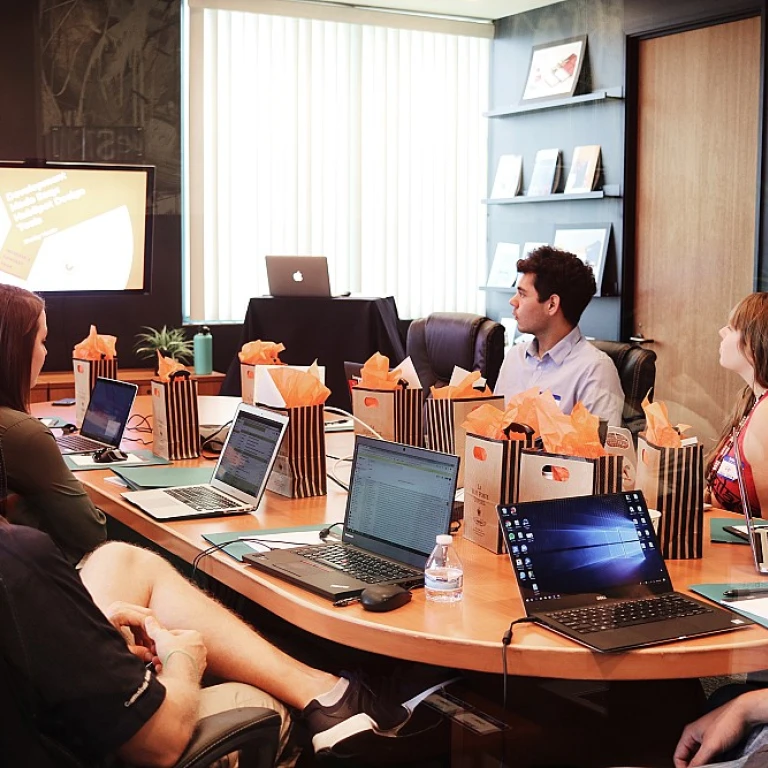
The Changing Dynamics of Workforce Staffing
The Evolving Landscape of Workforce Staffing
The dynamic environment of workforce staffing is undergoing substantial transformations as businesses strive to adapt to the rapidly evolving career opportunities landscape. In this shifting paradigm, organizations are reassessing traditional staffing models, giving rise to innovative approaches in talent acquisition and management. Companies worldwide are prioritizing efficiency and agility to remain competitive in the modern business world.
As tech advancements influence the job market, roles that once required manual intervention are now increasingly automated. As a result, there is significant interest in harnessing software services to optimize staffing recruiting processes. This shift demands that teams develop strategies focusing on flexibility and future readiness. Businesses are evolving their approach to talent acquisition, aiming to build resilient teams capable of adapting to future challenges. Moreover, companies are capitalizing on technological solutions, such as automated recruiting tools, to streamline hiring processes.
While automation reshapes career paths, it also creates avenues for new job roles and opens up exciting career opportunities. Many organizations are embracing the direction of team development, pushing the boundaries of what's possible in recruitment and staffing. Meanwhile, sector-specific changes, including a stronger focus on remote work and cyber security, require organizations to prepare their workforce for emerging jobs that demand new expertise and skills.
For businesses and managers looking to navigate these staffing changes, it's vital to remain well-informed about regulatory changes and labor market trends. This minimum wage shift might influence employment strategies, such as those discussed in this article. Efficiently navigating these changes can determine a company's ability to attract and retain top-tier talent.
Impact of Automation and AI on Staffing
The Rise of AI and Automation in Workforce Staffing
The modern workplace is experiencing a seismic shift as automation and AI technologies are increasingly being integrated into workforce staffing. These advancements have brought about a transformative impact on talent acquisition processes, fundamentally altering how we view career paths and professional development.
Automation and AI have streamlined tedious tasks and enhanced productivity in staffing services. For instance, AI-powered recruiting software efficiently browses job applications, identifying top candidates for various roles, thereby saving critical time for hiring managers. This optimization allows businesses to focus more on strategic decision-making, essential particularly in tech and development sectors.
Moreover, AI technology has opened new career opportunities for those with skills in AI and automation itself. These skills are becoming highly sought after by companies aiming to build competitive teams. Hence, job seekers aiming for exciting careers should focus on learning and development to align with futurepath trends.
- AI influences every aspect of staffing recruiting, from resume screening to the final onboarding process.
- The emergence of specialized roles in cybersecurity and AI development continues to create paths for tech-driven careers.
- Automation contributes significantly to talent acquisition, ensuring the availability of a dynamic and adaptable workforce.
AI and automation are paving a future where staffing operations are not only more efficient but also capable of delivering tailored experiences to both job seekers and employers. Nonetheless, it's crucial for businesses to balance the adoption of such technologies with the human touch to maintain ethical and effective workforce management practices.
Remote Work and Its Influence on Staffing
Remote Work: Revolutionizing Staffing Dynamics
The shift towards remote work is undeniably transforming workforce staffing across all sectors. Driven by advances in technology and changes in work culture, remote work opens new doors for talent acquisition and management. Companies are finding themselves in a position to tap into a global talent pool, free from geographical constraints. This not only enhances diversity within teams but also provides exciting career opportunities for individuals worldwide. With remote work becoming a mainstream option, businesses need to adapt their staffing strategies. Tech recruiters are essential in navigating the digital landscape to identify skilled individuals who can thrive in a virtual environment. As a result, staffing recruiting practices are evolving, focusing on candidates who demonstrate adeptness with digital tools and the ability to collaborate effectively from afar. Integrating software solutions for online collaboration and productivity has become a top priority for managers aiming to build cohesive remote teams. Companies utilize various online platforms to streamline work processes, promoting efficiency and engagement among team members. Furthermore, remote work necessitates a robust approach to cyber security to protect company data and ensure privacy. In terms of talent development, remote working environments provide opportunities for flexible learning and career coaching. Employees can explore various career paths and enhance their skills through e-learning and virtual training programs. One such program is the train-the-trainer certification, which will help foster a culture of continuous learning and adaptability. Enhancing skills with Cert. The influence of remote work on workforce staffing is evident as hiring practices increasingly prioritize candidates with self-motivation, reliability, and strong communication skills. Emphasizing these traits in talent acquisition strategies ensures that businesses can thrive in the evolving landscape of remote work.Skills for the Future: What Employers Are Looking For
Essential Skills in the Emerging Workforce Landscape
In the rapidly evolving job market, the skills employers are seeking are transforming dramatically. As technology continues to automate routine tasks, the emphasis is shifting towards soft skills and specialized technical knowledge that machines cannot easily replicate. This shift is influencing talent acquisition, as organizations prioritize candidates who can adapt and lead in a tech-driven environment. As businesses evolve, futurepath initiatives are becoming crucial in career coaching and development, addressing the growing need for a tech-savvy workforce. Navigation through this demanding landscape necessitates a multifaceted approach:- Tech Proficiency: The ever-expanding realm of technology requires more than basic computer literacy. Skills in areas such as software development, cyber security, and data analytics are becoming increasingly sought after by tech recruiters. Staying proficient with current tech trends will aid in building a strong career path.
- Soft Skills: Interpersonal skills such as communication, critical thinking, and emotional intelligence are pivotal for teamwork and collaboration in hybrid settings. Soft skills facilitate effective recruiting and help managers in building cohesive teams capable of navigating the complexities of modern work dynamics.
- Adaptability and Continuous Learning: The life span of job-specific skills is shortening, necessitating continuous learning and development programs. Employers value talent who constantly evolve their skill sets, ensuring alignment with business objectives as these objectives shift over time.
- Cultural Competence and Inclusivity: As remote work continues to redefine the traditional workplace, diversity in staffing is more critical than ever. Understanding diverse cultural perspectives and contributing to an inclusive environment not only nurtures creativity but also drives innovation within the top echelons of industry.
Diversity and Inclusion in Future Staffing
Embracing Diversity and Inclusion in Staffing
As businesses navigate the evolving landscape of workforce staffing, diversity and inclusion have emerged as critical components of a successful strategy. Companies are increasingly recognizing that a diverse team not only fosters innovation but also enhances the overall work environment. This shift is not just a trend but a fundamental change in how organizations approach talent acquisition and development.
Incorporating diversity and inclusion into staffing practices involves more than just meeting quotas. It requires a comprehensive approach that integrates these values into every aspect of the hiring process. From recruiting to career coaching, businesses are re-evaluating their strategies to ensure they are open to a wide range of perspectives and experiences. This is particularly important as the future of work continues to be shaped by technological advancements and the increasing importance of soft skills.
The Role of Technology in Promoting Inclusion
Technology plays a pivotal role in promoting diversity and inclusion within organizations. Advanced recruiting software and AI-driven tools can help eliminate biases in the hiring process, ensuring that candidates are evaluated based on their skills and potential rather than their background. Tech recruiters are leveraging these tools to build teams that reflect a wide array of experiences and viewpoints, which is essential for driving innovation and business growth.
Moreover, the rise of remote work has opened up new career opportunities for individuals who may have been previously excluded from traditional office environments. This shift allows companies to tap into a global talent pool, further enhancing their ability to build diverse teams. As businesses continue to adapt to these changes, they must prioritize creating inclusive environments that support all employees, regardless of their location or background.
Building an Inclusive Future
For managers and business leaders, fostering an inclusive culture is not just about hiring diverse talent but also about creating pathways for career development and growth. This involves providing learning and development opportunities that cater to a wide range of needs and career paths. By doing so, organizations can ensure that all employees have the tools they need to succeed and contribute to the company's success.
In conclusion, the future of staffing is inextricably linked to the principles of diversity and inclusion. As businesses strive to remain competitive in a rapidly changing world, embracing these values will be key to attracting and retaining top talent. By focusing on building inclusive teams, companies can create exciting career opportunities for all employees, paving the way for a more equitable and innovative future.
Regulatory and Ethical Considerations in Staffing
Regulatory Frameworks and Ethical Standards
As businesses and organizations navigate the evolving landscape of workforce staffing, regulatory and ethical considerations are becoming increasingly significant. The integration of automation and AI in staffing processes has brought about new challenges in compliance and ethics. Companies must ensure that their talent acquisition strategies align with legal standards while maintaining fairness and transparency.
One of the key areas of focus is data privacy. With the rise of tech-driven recruiting and staffing software, safeguarding candidate information is paramount. Organizations must adhere to data protection regulations to prevent breaches and maintain trust with potential hires. This is particularly crucial as businesses increasingly rely on digital platforms to browse jobs and manage staffing recruiting processes.
Balancing Innovation with Compliance
The future of work demands a balance between embracing innovation and adhering to regulatory requirements. As businesses explore new career opportunities and exciting career paths, they must remain vigilant about compliance with labor laws and ethical standards. This includes ensuring equitable hiring practices and preventing discrimination in the recruitment process.
Moreover, the role of tech recruiters and managers in building teams that reflect diversity and inclusion cannot be overstated. Organizations must prioritize diversity in their staffing strategies to foster a more inclusive work environment. This not only enhances team dynamics but also drives business success by tapping into a broader pool of talent.
Ethical Considerations in Talent Acquisition
Ethical considerations extend beyond compliance and diversity. Companies must also focus on the ethical implications of using AI and automation in staffing. This includes addressing biases in algorithms and ensuring that technology is used to enhance, rather than hinder, the hiring process. Career coaching and learning development initiatives can help bridge skill gaps and prepare employees for future roles, aligning with ethical staffing practices.
In conclusion, as businesses chart their future path in staffing and talent acquisition, they must remain committed to regulatory compliance and ethical standards. This commitment will help them build a sustainable and inclusive workforce, paving the way for a successful future in the ever-evolving world of work.













